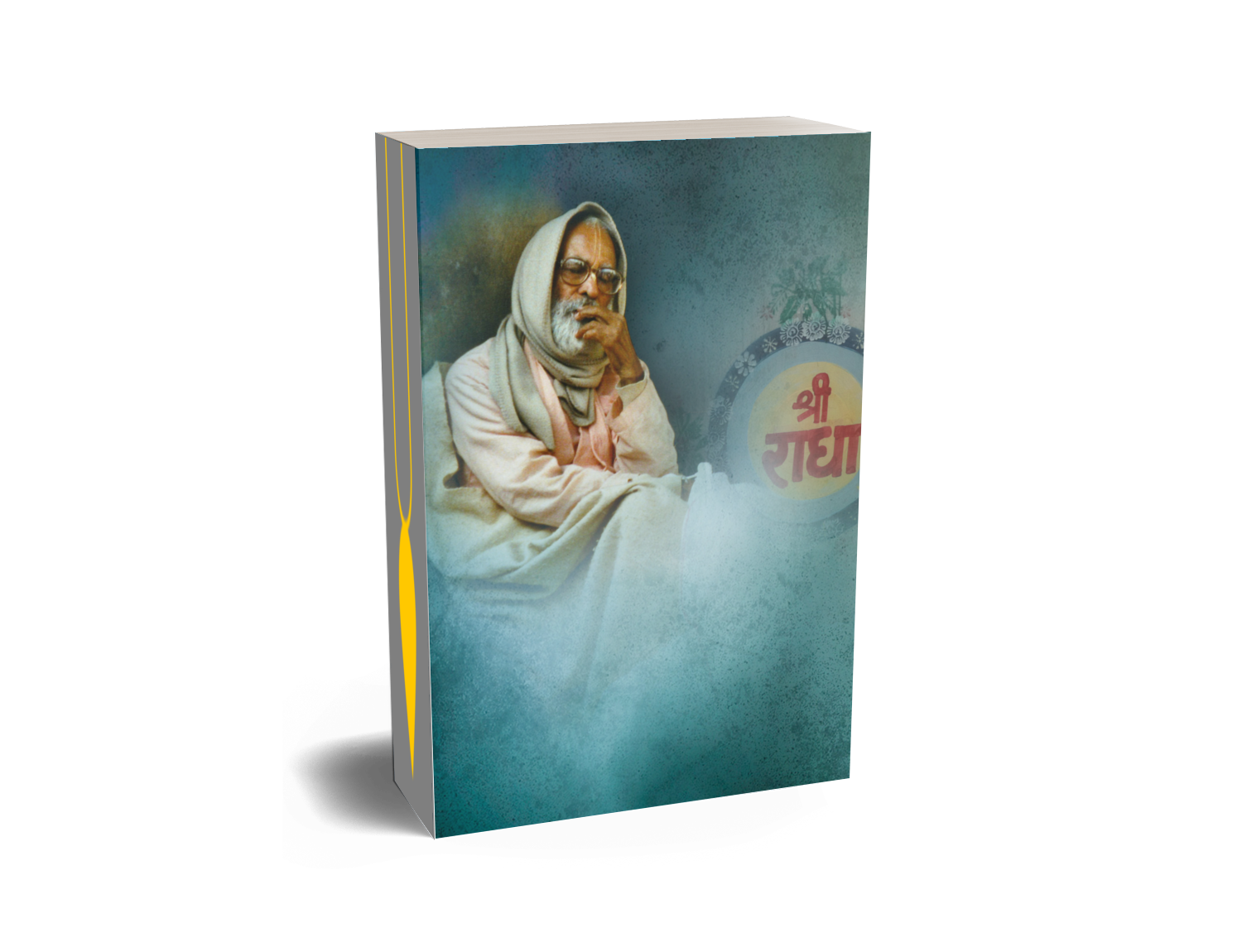

The following is an excerpt from a letter, written by Śrīla Bhaktivedānta Nārāyaṇa Mahārāja dated July 11, 1993, published in Śrī Mādhava-tithi
Please accept my heartly blessings. All glories to Śrī Śrī Guru and Gaurāṅga and Śrī Śrī Rādhā Vinoda-vihārī.
I received your letter sent to Navīna Kṛṣṇa Brahmacārī. You have inquired about nirjalā-ekādaśī and cāturmāsya-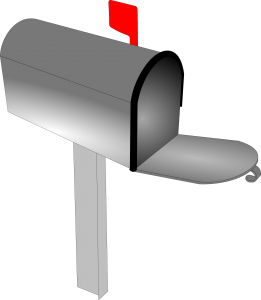 vratas. I think you have Hari-bhakti-vilāsa and you have all read these topics in that book. You have also read in Śrīmad-Bhāgavatam about Ambarīṣa Mahārāja who always used to do nirjalā-ekādaśī. From Hari-bhakti-vilāsa and from the example of Ambarīṣa Mahārāja’s vrata, we know that on the day before ekādaśī we should take prasāda only one time, and we should not take any water – even at night. On the second day we should take no water and no mahā-prasāda, throughout the entire day and night. We should not sleep. We should observe brahmacārya, always chant and hear hari-kathā, and we should read bhakti books. Also, we should always remember the pastimes of Kṛṣṇa, using our eleven indriyas (senses) in His service. On the next day, after worshipping the Deities, we can take pāraṇa, the remnant food grains of mahā-prasāda.
vratas. I think you have Hari-bhakti-vilāsa and you have all read these topics in that book. You have also read in Śrīmad-Bhāgavatam about Ambarīṣa Mahārāja who always used to do nirjalā-ekādaśī. From Hari-bhakti-vilāsa and from the example of Ambarīṣa Mahārāja’s vrata, we know that on the day before ekādaśī we should take prasāda only one time, and we should not take any water – even at night. On the second day we should take no water and no mahā-prasāda, throughout the entire day and night. We should not sleep. We should observe brahmacārya, always chant and hear hari-kathā, and we should read bhakti books. Also, we should always remember the pastimes of Kṛṣṇa, using our eleven indriyas (senses) in His service. On the next day, after worshipping the Deities, we can take pāraṇa, the remnant food grains of mahā-prasāda.
By chance, if Nityānanda Prabhu’s or Advaita Ācārya Prabhu’s birthday comes on that day (dvādaśī), and we want to maintain our vrata, we will break the ekādaśī-vrata by taking Kṛṣṇa caraṇāmṛta. No food grains are to be taken, but on that day we can take water. And on the next day, after worshipping Nityānanda Prabhu or Advaita Ācārya, we will break the vrata by remnants of mahā-prasāda food grains.
All this has been told for persons who are able to do so. Those who are not able should follow Śrīla 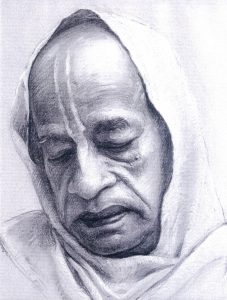 Prabhupāda Bhaktivedānta Svāmī Mahārāja’s guidelines.* In Kali-yuga, only rare persons can follow, but if anyone wants to follow, that is very good. I have seen generally that our Gurudeva, Śrīla A. C. Bhaktivedānta Svāmī Mahārāja, Pūjyapāda Śrīdhara Mahārāja, Pūjyapāda Mādhava Mahārāja, Pūjyapāda Bhakti-vilāsa Tīrtha Mahārāja, Pūjyapāda Bhāratī Mahārāja, and other respected ācāryas did not do nirjalā when they became elderly. They used to take milk, curd, fruit juice, boiled potato, plantains, and other vegetables with ekādaśī salt. But I have also seen Vaiṣṇavas doing nirjalā ekādaśī. You can follow which is suitable for you.
Prabhupāda Bhaktivedānta Svāmī Mahārāja’s guidelines.* In Kali-yuga, only rare persons can follow, but if anyone wants to follow, that is very good. I have seen generally that our Gurudeva, Śrīla A. C. Bhaktivedānta Svāmī Mahārāja, Pūjyapāda Śrīdhara Mahārāja, Pūjyapāda Mādhava Mahārāja, Pūjyapāda Bhakti-vilāsa Tīrtha Mahārāja, Pūjyapāda Bhāratī Mahārāja, and other respected ācāryas did not do nirjalā when they became elderly. They used to take milk, curd, fruit juice, boiled potato, plantains, and other vegetables with ekādaśī salt. But I have also seen Vaiṣṇavas doing nirjalā ekādaśī. You can follow which is suitable for you.
Somehow we should try to remember Kṛṣṇa, along with His associates and His pastimes, throughout the day and night. Don’t sleep, and don’t be lazy. If anyone does nirjalā ekādaśī, but at the same time gets a headache, becomes nervous, becomes lazy, and he does not remember Kṛṣṇa, then there is no use of doing nirjalā. Somehow our hearts should always remember Kṛṣṇa’s pastimes. The main objective of all our activities should be to somehow or other keep our heart always at the lotus feet of Kṛṣṇa, by hook or crook.
Regarding cāturmāsya, we should try to follow Hari-bhakti-vilāsa and Śrīla Bhaktivinoda Ṭhākura. Śrīla Bhaktivinoda Ṭhākura has written an article in which he has explained what to eat and what not to eat in each of the four months, but he did not include certain prohibitions. So you should read Hari-bhakti-vilāsa and try to follow it. If you take fruits, they should be taken once in a day, not again and again, so many times in a day. I only 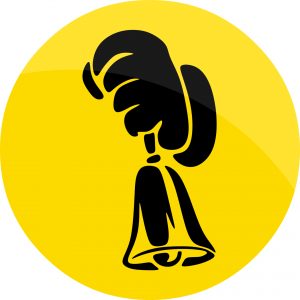 try to follow my Gurudeva. We should follow our Gurudeva.
try to follow my Gurudeva. We should follow our Gurudeva.
Regarding serving the Deities during Cāturmāsya, certainly we cannot keep our fingernails so long. We try to be neat and clean to serve the Deities.
During the four-month cāturmāsya-vrata, we should bathe the Deities with pañcāmṛta (yoghurt, milk, ghee, honey, and sugar), and this pañcāmṛta should be taken by us. At that time it becomes pañcāmṛta-caraṇāmṛta, and therefore it should be taken. This is also true in the case of dahī (yoghurt) and madhu. Madhu, honey, is prohibited, but when it is included in that pañcāmṛta, it can also be taken. Only during nirjalā-ekādaśī is pañcāmrta-caraṇāmrta prohibited, although it can be taken after breaking fast.
We should try to follow the culture and activities of Vaiṣṇava behaviour. Whether outsiders criticize or not, we should try to follow all principles strictly. This is pracāra. We should not leave the bhakti cult in any way. Once an Indian devotee prayed to Śrīla Bhaktivedānta Svāmī Mahārāja, “I have not shaved, I will take only tulasī-mālā on my neck, and I will not do Kārtika-vrata or ekādaśī-vrata. But I will follow you and I want to live with you.” Śrīla Svāmī Mahārāja rejected the proposal. Actually, in our cult we don’t shave daily.* Brahmacārīs and sannyāsīs should only shave one time in a month as we have seen Śrīla Prabhupāda Bhaktisiddhānta Sarasvatī and his 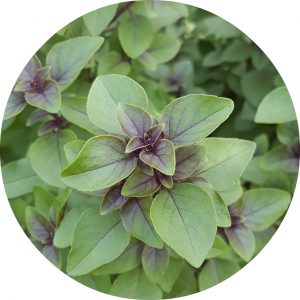 followers do, and we have also heard about Caitanya Mahāprabhu and His followers did.
followers do, and we have also heard about Caitanya Mahāprabhu and His followers did.
We don’t follow any other Purāṇas or Mahābhārata. We follow Caitanya Mahāprabhu and His followers. When there is any discrepancy between the Vedas and the Purāṇas, that is, Bhāgavata, we will follow Śrīmad-Bhāgavatam. We should try to follow Śrīla Rūpa Gosvāmī and Śrīla Sanātana Gosvāmī and our guru-paramparā. I have not read Mahābhārata so deeply, but I know the Vaiṣṇava paramparā. We don’t touch Tulasī on the dvādaśī day. We should follow this. And if you have seen Mahābhārata with your own eyes, then there is no harm that on Amāvasyā we do not touch Tulasī.
We hope this letter will find you in good health and Kṛṣṇa Consciousness.
Your ever well-wisher,
Svāmī B.V. Nārāyaṇa
*Śrīla Mahārāja has often explained that Śrīla Prabhupāda Bhaktivedānta Svāmī Mahārāja was dealing in certain ways with beginners, knowing that they would come to stricter standards later on.
Image/Art made possible by Pixabay.com & Krishnapath.org








